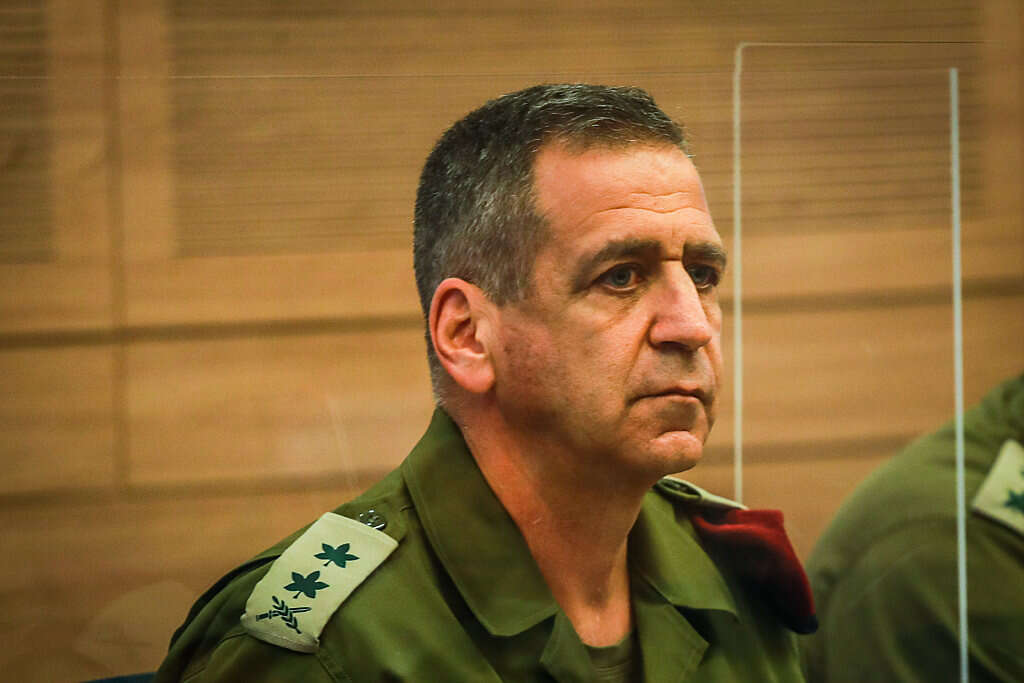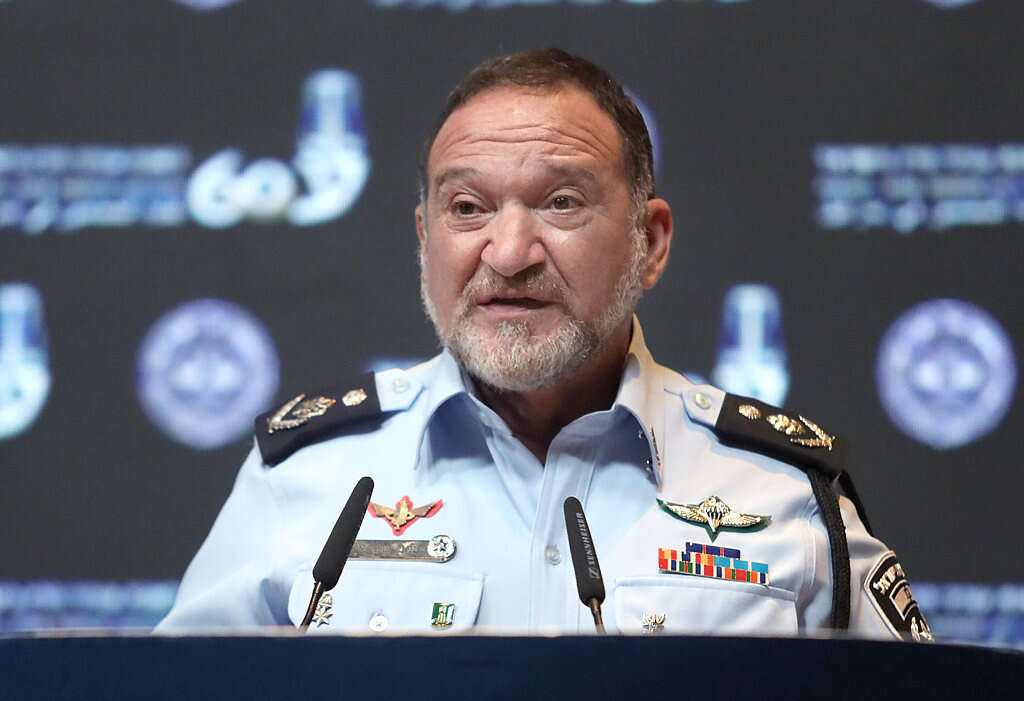The Muslim holy month of Ramadan is set to begin on Saturday amid a recent wave of terrorist attacks in Israeli cities and a clear rise in incitement on social media and in mosques.
Follow Israel Hayom on Facebook, Twitter, and Instagram
"We are in the midst of a difficult and despicable terror wave in Israel. The Ramadan period combined with the upcoming Jewish holidays is a complex time for the entire country," said Israel Police Commissioner Yaakov Shabtai in a memorandum to police officers.
As Ramadan begins, the Jerusalem District police department will be reinforced with 3,000 police officers and Border Policemen, in the working assumption that a terrorist attack in Jerusalem can ignite a conflagration across Israel and the Palestinian territories.
"Jerusalem is the epicenter of everything that will happen over the coming month," a senior police officer told Israel Hayom.
Contrary to the past two years, during which the number of worshippers at the Temple Mount decreased significantly due to the COVID pandemic, this year the Israel Police is preparing for a full capacity of some 150,000 Muslim worshippers, at least, at the holy site.
At this stage, Jerusalem District Police chief Doron Turgeman said he doesn't plan on placing checkpoints at the Damascus Gate leading into the Old City, but added that in the case of riots or public disturbances, he would not rule the option out, including the use of "Skunk" – a malodorant, non-lethal weapon used for crowd control. As stated, the police have seen increased incitement and calls from various elements to carry out terrorist attacks, and have taken action in recent days against some 50 individuals – including issuing warnings, detaining them, summoning them for questioning and even issuing administrative detention warrants for 17 people labeled extremely dangerous.
"Our response must be swift," said Turgeman.
'Many challenges ahead'
The police high-command, meanwhile, was also preparing for the most extreme scenarios, including the expansion of the current terror wave, continuation of attacks, and mass rioting across the country, similar to the events of last year during Operation Guardians of the Wall in Gaza.
In his memo, Shabtai praised the actions of police officers during the ongoing wave but noted that "many challenges still lie ahead. The upcoming period will require us to continue standing against terror, which is raising its head in a vicious manner at the moment.
The IDF was also preparing for the possibility that security tensions will persist for several weeks.
On Thursday, IDF Chief of Staff Aviv Kochavi held a special meeting to discuss the ongoing heightened tensions, while Israeli forces arrested more than 30 Palestinians in various counterterrorism operations overnight Wednesday.

Members of the IDF top brass and senior Shin Bet security officials were in attendance to discuss the special measures that were introduced in recent days and prepare for upcoming Jewish and Muslim holidays.
During the overnight raids in the Palestinian city of Jenin in northern Samaria, three were arrested for helping carry out the recent attack in Bnei Barak, in which five people were killed. Three terrorists who shot at the troops were killed. The troops also confiscated illegal arms, including an M-16 assault rifle, in a nearby village. Meanwhile, special forces units conducted raids across Judea and Samaria, which culminated with additional arrests, including an Islamic State-affiliated terrorist.
Kochavi visited the Judea and Samaria Division and held a situational assessment meeting with GOC Central Command Maj. Gen. Yehuda Fuchs and the commander of the Judea Samaria Division, Brig. Gen. Avi Bluth, Civil Administration head Brig.-Gen. Fares Atila, and representatives from the Shin Bet, Israel Police, and Border Police.
The IDF chief told those in attendance that they "have the ability and duty to prevent terrorist attacks. You can crack down on what led to this recent spate of attacks and frustrate additional attempts."
'Using all the tools available'
Prime Minister Naftali Bennett and Public Security Minister Omer Barlev, meanwhile, approved emergency funding of NIS 180 million ($56.36 million) to the Israel Police.
The first 111 million ($35 million) will be transferred immediately and the rest by August, the statement said.
The funds will be used, among other things, to create a reserve Border Police company as well as for the immediate recruitment of 200 Border Police non-commissioned officers, the procurement of 6,500 bulletproof vests, 4,000 helmets, and 40 motorcycles, equipping for 10 Border Police companies, and recruitment of volunteers, consolidation, and strengthening of the National Guard and recruitment of reservists.
Subscribe to Israel Hayom's daily newsletter and never miss our top stories!
"For many years, the Israel Police has been neglected and the operational needs required to meet its missions have not been met," Bennett said after the announcement. "We are fixing this and are now allocating significant resources to meet the overarching mission – protecting public safety. A strong police equals a strong State of Israel. This is the equation and this is what we are applying. We are in the midst of a wave of terror directed against the citizens of Israel and are working with all tools and in all arenas to restore security and a sense of security. This is our duty. As until today, this time too - we will succeed together."

Barlev praised the move, calling it "an unprecedented milestone and show of trust … in the police."
"Many years of neglect that has led to many gaps that were exposed in the events of Operation Guardian of the Walls and will enable a response and improvement of operational capabilities. I will continue to strengthen the Israeli police and internal security in order to strengthen the sense of security of all Israeli citizens and the strength of Israeli society," he said.
Shabtai concurred saying "It is an important and significant budget and resource increase at this time, in which Israeli police officers are physically protecting Israeli citizens from terrorism with an unprecedented deployment throughout the country. Along with the many tasks of the Israel Police in the daily routine in the areas of crime, civil service, road accidents, counterterrorism, and many other areas, there are also major challenges in preparing for escalation and emergency scenarios, and with this important intensification, we are better prepared for probation. I congratulate the Prime Minister and the Minister of Public Security on formulating the budget summary for a much stronger and more effective police force."
Lilach Shoval contributed to this report.




